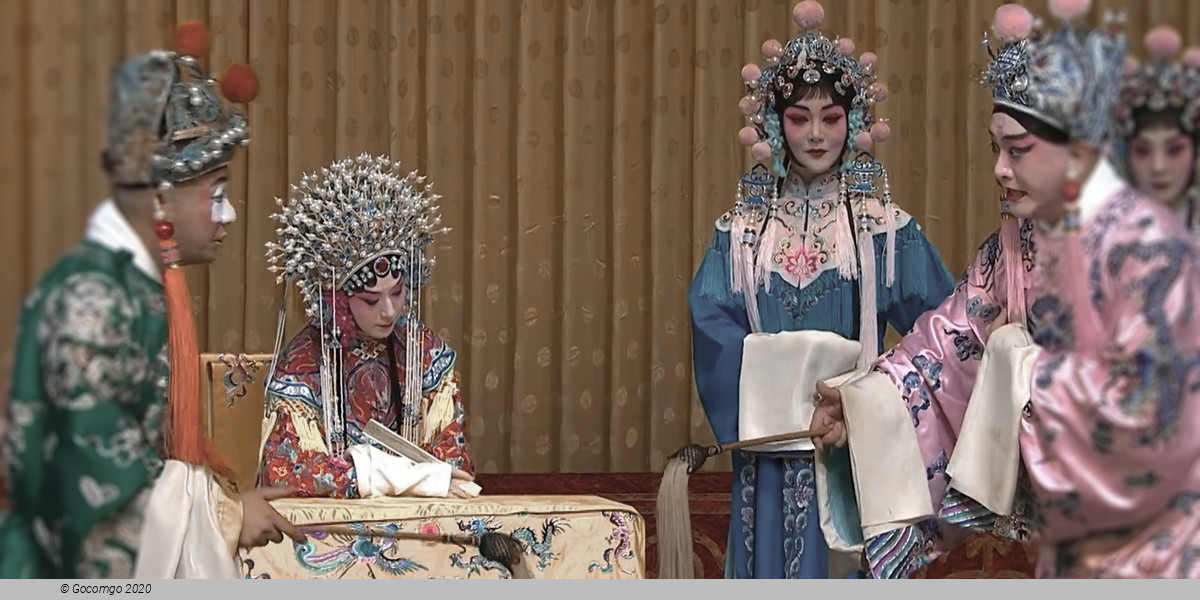"The Peony Pavilion" is an important milestone in the development history of Chinese drama literature and a dazzling pearl in the splendid culture of the Chinese nation. As the only troupe in the country that can perform all 55 works of "The Peony Pavilion", the Shanghai Kun Opera Troupe devoted its entire efforts to launch the complete version of "The Peony Pavilion", the pinnacle of Kun Opera, with three performances in two consecutive days, a total of nearly 8 hours. The large-scale performance presents the essence of Tang Weng's original work and restores the elegant charm of Kun Opera.
The top team dedicatedly created 55 complete versions of "The Peony Pavilion"
The huge size of three consecutive operas - upper, middle and lower - is rare in history.
"Dreams become dreams because of love, and dreams become plays because of dreams." The great playwright Tang Xianzu of the Ming Dynasty devoted his entire life to creating "Four Dreams of Linchuan", which has become a treasure among human dramas due to its profound ideological connotation. Tang Xianzu said: "I have four dreams in my life, and I am only proud of "The Peony Pavilion."" Over 400 years since the script was born, "The Peony Pavilion" once became the endorsement of Kun Opera's masterpieces, with its positive romantic expression method and twists and turns of the drama. The plot, showing a high degree of ideological and artistic quality, has become an important milestone in the development history of Chinese drama literature. However, due to various reasons, it is rarely performed in its entirety in history.
The full version of "The Peony Pavilion" has gathered the industry's top expert team and creative team. Shangkun specially invited the famous theater director Guo Xiaonan to be the director of the play, and personally participated in the play based on the shortening of the script by the late famous playwright Wang Renjie. For the script reduction work of the sub-complete version of "The Peony Pavilion", Cai Zhengren, Yue Meiti, Zhang Jingxian, and Li Xiaoping, national treasure-level Kunqu opera artists, were specially invited to provide inheritance guidance. The late famous composer Xin Qinghua, famous composers Zhou Xuehua, and Li Liang served as vocal music designers. Huang Haiwei, a national first-class stage designer, serves as the stage designer, and the strong performance lineup of "Five Classes and Three Generations" of Shangkun Kunming is the backbone of the performance. In the play, "Du Liniang" and "Liu Mengmei" are played by Luo Chenxue and Hu Weilu from "Kunming Class Four". Wu Shuang, winner of the Plum Blossom Award for "Kunsan Class Three", plays "Judge" and "Wan Yanliang" respectively in the play. All outstanding young actors from Shangkun participated in the creation and performance of 55 "complete works".
The play is a collision and resonance between Kun Opera and historical society, which integrates the already dazzling Tang Xianzu's "The Peony Pavilion" with the aesthetics of the new era into a more layered and three-dimensional complete work. On the dreamlike stage, an imaginary picture about love, ethics, and destiny is intertwined.
Synopsis
Liniang, the daughter of Du Bao, the prefect of Nan'an, longed to break through the constraints of ethics. In spring, she went to the back garden with her maid Chunxiang, fell in love with the scenery, and met Liu Mengmei in her dream. After that, Liniang died of illness due to growing lovesickness. When the war broke out in the North, Du Bao was ordered to resist the enemy and buried his daughter in the back garden before leaving.
Du Liniang passed away due to love, which moved the underworld judge and allowed her to wander around in search of the lover of her dreams. On her way to Beijing to take the exam, Liu Mengmei was stranded in Nan'an due to illness. She accidentally found Du Liniang's portrait in the back garden, and took it back to her study to confess it repeatedly. After his resurrection, he went to Hangzhou together.
Du Bao was defending against enemies in Huaiyang. Du Mu and Chunxiang were separated from Du Bao during the war and took refuge in Hangzhou, where they met Liniang by chance. Liniang sent her husband to the front line to inquire about her father's safety, but Du Bao thought she was a gravedigger and tortured her. Later, Liu Mengmei won the first prize, and Du Bao went to Beijing to be promoted to prime minister, but he still stubbornly believed that his wife and daughter were ghosts. After the emperor found out, the family was reunited.



 No.1 Zhujiang West Road, Zhujiang New Town, Tianhe District
No.1 Zhujiang West Road, Zhujiang New Town, Tianhe District